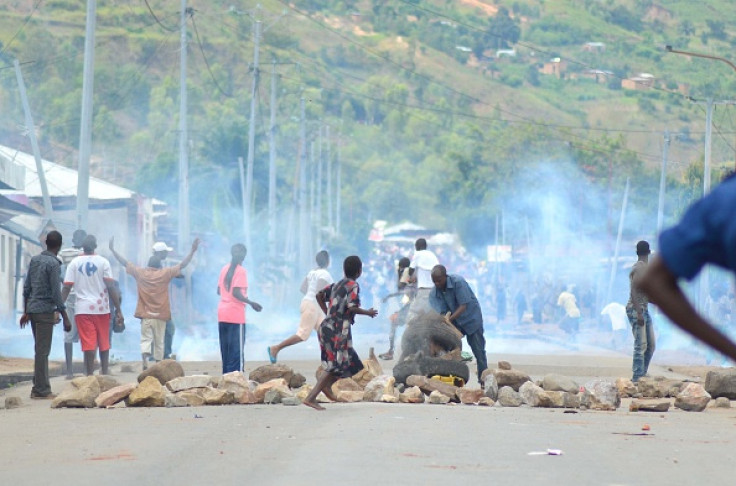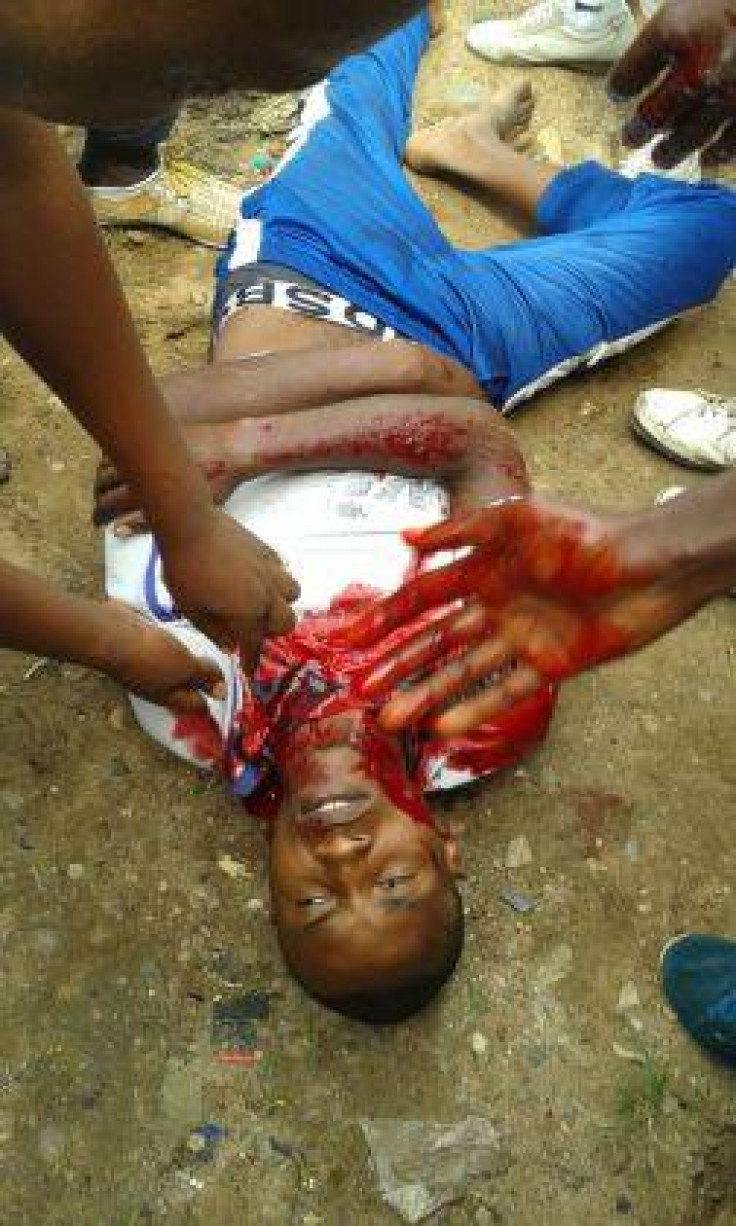Burundi: 5 dead and 20,000 flee violence as genocide fears spread

At least five people have been killed in Burundi after violence erupted in the country at the weekend (25-26 April), following President Pierre Nkurunziza's announcement that he is seeking a third term in June's election.
Hundreds of people took to the streets of the capital Bujumbura defying a national ban on protests and chanted "the fight continues" after Nkurunziza's party, the National Council for the Defense of Democracy (CNDD-FDD), nominated him as its candidate.
The demonstrators were angered by the party's decision, saying it is anti-constitutional as the president can only seek two five-year terms according to the Arusha peace agreement. The document was signed in 2000 and intended to pave the way to democracy and end the civil war started in 1993.
The conflict, fought between ethnic Hutu and Tutsi, has killed at least 300,000 people.
Activists told Reuters that protesters hurled stones at the police, who used water cannons, tear gas and bullets to disperse the rioters.
"The military are aware that we are going to hold protests, but have warned us that they should remain peaceful and that's all we are asking for," an activist said.
Nkurunziza has been in power since 2005. His supporters said that his first term should not be considered as he was chosen by the Parliament.
At his nomination, Nkurunziza said: "I would like to warn everyone: Whoever wants to create problems with the ruling party elected by the people, he'll find himself in trouble."
Activists also said that demonstrators were targeted by the militia working for the ruling party and radio stations were being shut down. It is also believed that some 20,000 people crossed the border and are now in Rwanda.
The US government expressed concern over Burundi's decision to ignore the Arusha agreement as it is "losing an historic opportunity to strengthen its democracy by establishing a tradition of peaceful democratic transition".
Tutsis are fleeing amid genocide fears

According to Uganda-based independent journalist Fulvio Beltrami, the CNDD-FDD has always supported an ideology that promoted Hutu supremacy.
Following the assassination of the then president Melchior Ndadaye in 1993, the party allegedly tried to carry out a genocide against the Tutsi minority in the country. In retaliation, the army, mainly composed of Tutsi, massacred thousands of Hutu and whoever was suspected of being a CNDD-FDD supporter. The murders triggered the country's civil war.
Speaking about the ongoing protests in the eastern African nation, Beltrami told IBTimes UK: "The majority of the protesters were Tutsi. Today's [27 April] manifestation saw also the participation of opposition parties, members of the Catholic Church, NGOs and human rights associations.
"The protest has been violently repressed by the police, the Imbonerakure – the youth wing of the CNDD-FDD – and Rwandan terrorists from the Hutu rebel group Democratic Forces for the Liberation of Rwanda (FDLR).
"Hundreds of people have been arrested as confirmed by the correspondent of Radio France International Sonia Rolley," he continued. "Meanwhile, hundreds of Burundian Tutsi are crossing the Nyansa lake, on the border with Tanzania, and the Ruhwa and Ruzizi rivers, on the border with Rwanda and Ruzizi, fearing that a genocide against them could occur. They are sheltering in Tanzania, in southern Rwanda and the Congo."
Beltrami, who writes for Italian newspapers L'Indro and Reteluna.it, explained that while the Ugandan government has expressed its concern about the situation, Rwanda has beefed up its security on the border with Burundi.
He added that witnesses said that some Burundian Tutsi have been joining a new, "mysterious" militiamen group.
"There are suspicions that the Rwandan government and army are behind this new group, which might resemble the Rwandan Patriotic Front (RPF), which freed Rwanda after 100 days of massacres against the Tutsi in 1994."
© Copyright IBTimes 2024. All rights reserved.







